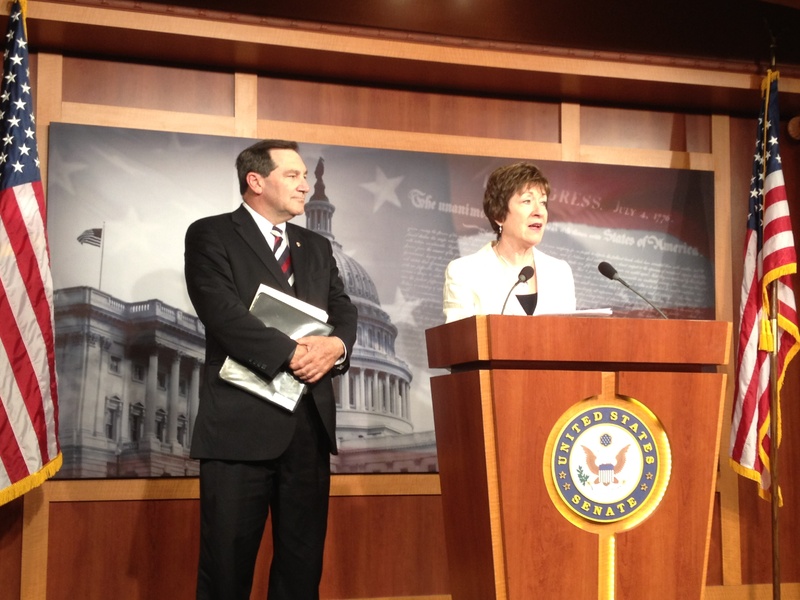WASHINGTON — Maine Sen. Susan Collins is working with an Indiana Democrat to target an aspect of President Obama’s health care law that Collins said provides employers with “a perverse and powerful incentive” to cut back hours for some workers.
But if past attempts to tweak the Affordable Care Act are any indication, the bipartisan bill will likely also face bipartisan opposition in a Congress still deeply polarized over the law.
Under the Affordable Care Act — or Obamacare — businesses with 50 or more full-time employees will be required to provide workers with health insurance or pay a penalty. The law defines full-time employee as anyone who works 30 hours or more per week.
Collins and Sen. Joe Donnelly, D-Ind., would change the health care law’s definition of a full-time employee to anyone who works at least 40 hours per week. The shift, the senators said, would make the health care law consistent with traditional notions of the standard work week and potentially dissuade some employers from dropping workers to below 30 hours per week to avoid health care obligations.
“These penalties create a perverse and powerful incentive for employees to cut the hours their employees are allowed to work so that they are no longer considered to be full time under the law,” Collins said during a news conference with Donnelly in the Capitol. “How can that possibly make sense?”
Collins introduced the bill, titled “Forty Hours is Full Time Act of 2013,” earlier this year. Adding Donnelly as a lead co-sponsor gives it a bipartisan label.
Both Donnelly and Collins said they have heard from businesses within their states that plan to either reduce employee hours or hire part-timers instead of full-time workers in order to avoid having to provide health insurance.
“We have heard from folks in Indiana who said, ‘Look, I was working 35 hours and now I am going to be working 29 hours,” Donnelly said. Members of Indiana’s House delegation, meanwhile, have asked the Obama administration for the number of schools expected to reduce staff hours as a result of the law.
The Affordable Care Act remains an intensely partisan issue in Washington and that partisanship has, to date, scuttled attempts to change the law.
Democrats fear that entertaining any changes could open the proverbial Pandora’s box, leading to additional legislative fights on an issue that also deeply divides voters. Many Republicans, meanwhile, simply want to scrap Obamacare and have, therefore, resisted any efforts to tweak or improve a law they insist is fatally flawed.
That deadlock continues even as the clock counts down to the law’s implementation next year. Last month, the Republican-controlled House voted for the 37th time — largely along party lines — to repeal the law. The Democrat-controlled Senate, meanwhile, has defeated all repeal efforts.
Collins voted against the Affordable Care Act in 2010, while Donnelly voted for it. Asked about the political realities facing their proposal, both senators said they have been contacted by Democrats and Republicans who share their concerns about the 30-hour provision. But they also acknowledged that there are lawmakers on both sides of the issue who prefer that the law go into effect as is and then wait for the consequences.
“I personally do not think that is an appropriate response,” Collins said. “When there is such a glaring error in the law I think it is incumbent upon us to try to fix it, not to allow harm to low-income wage earners and not to create problems for our business community when unemployment is already high.”
In a separate effort, Donnelly and Collins also sent a letter to President Obama on Wednesday urging the administration to give employers “ample transition flexibility” beyond Jan. 1 to comply with the law without financial penalties.
Kevin Miller can be contacted at 317-6256 or at:
kmiller@pressherald.com
Twitter: @KevinMillerDC
Send questions/comments to the editors.



